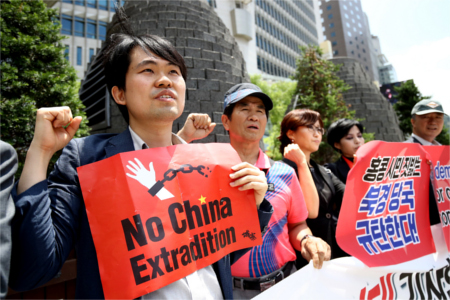by Philip Bowring
HONG KONG, June 17, 2019–It was an historic eight days in Hong Kong, culminating in the biggest demonstration the territory had ever seen. It showed that peaceful mass action can still work.
The cause was the introduction to the Legislative Council of a bill which would have enabled the extradition of criminal suspects to jurisdictions, notably the mainland, with which Hong Kong had no extradition treaty. This proposed demolition of the legal firewall between Hong Kong and the mainland immediately aroused the opposition of pro-democracy and lawyers’ groups and foreign governments and chambers of commerce. Local business groups demanded exemptions for business-related crimes.
The government made some minor concessions to the business objections but otherwise pushed ahead, improbably claiming the matter was urgent to enable the return to Taiwan of a murder suspect. In reality, Taiwan had no intention of putting its own citizens at risk when visiting Hong Kong by cooperating in any such extraditions.
In its haste to ram the measure through the legislature where the government holds a majority, the Hong Kong administration forced the replacement of the head of the committee in charge of examining the bill’s details. But even that was too slow for Chief Executive Carrie Lam who demanded that the bill be brought to an immediate vote, scheduled for Wednesday June 12.
Few believed that the government could be forced by public opinion to change course. Nonetheless, on June 9 more than 500,000 people held a peaceful three-mile march from the city’s Victoria Park to the legislature buildings. Lam took no heed.
So the word went out for individuals and businesses to strike on June 12 and for demonstrators to surround the legislature to prevent access. The response was massive. By late morning, tens of thousands had assembled, bringing the central district to a standstill. Banks closed and the legislative council meeting had to be postponed. The demonstrations carried on until around 4pm when hundreds of riot police kitted out with masks, helmets, shields and batons and firing tear gas, rubber bullets and pepper spray advanced on the crowds. Several times they retreated then returned to face more volleys of gas. By the time the protesters were dispersed, many were injured and Hong Kong was in a state of shock at the unprecedented violence.
Lam made matters worse by accusing the demonstrators of “rioting” – which can carry a heavy jail term – and speaking of them in a demeaning tone as children who needed parental disciplining. Business leaders (and mainland money) worried about the impact of such remarks on Hong Kong’s economy, and the preservation of its international status as a separate commercial entity at this time of U.S.-China trade conflict. For two days Lam was silent, apparently meeting with mainland officials. Then she emerged on June 16 to announce the postponement of the bill.
But given her unapologetic tone, few believed that this was the end of the matter. The public response was yesterday’s mega demonstration which, more wisely than before, was shepherded by police in normal uniforms. The million-strong message: resurrect this bill and we will be back. Lam finally apologised for her failures. Her career is in ruins but more important for Hong Kong is that the mass movement to protect its separate identity has for now beaten the odds.
Philip Bowring is a former editor of the Far Eastern Economic Review and a past president of the Hong Kong Foreign Correspondents Club

